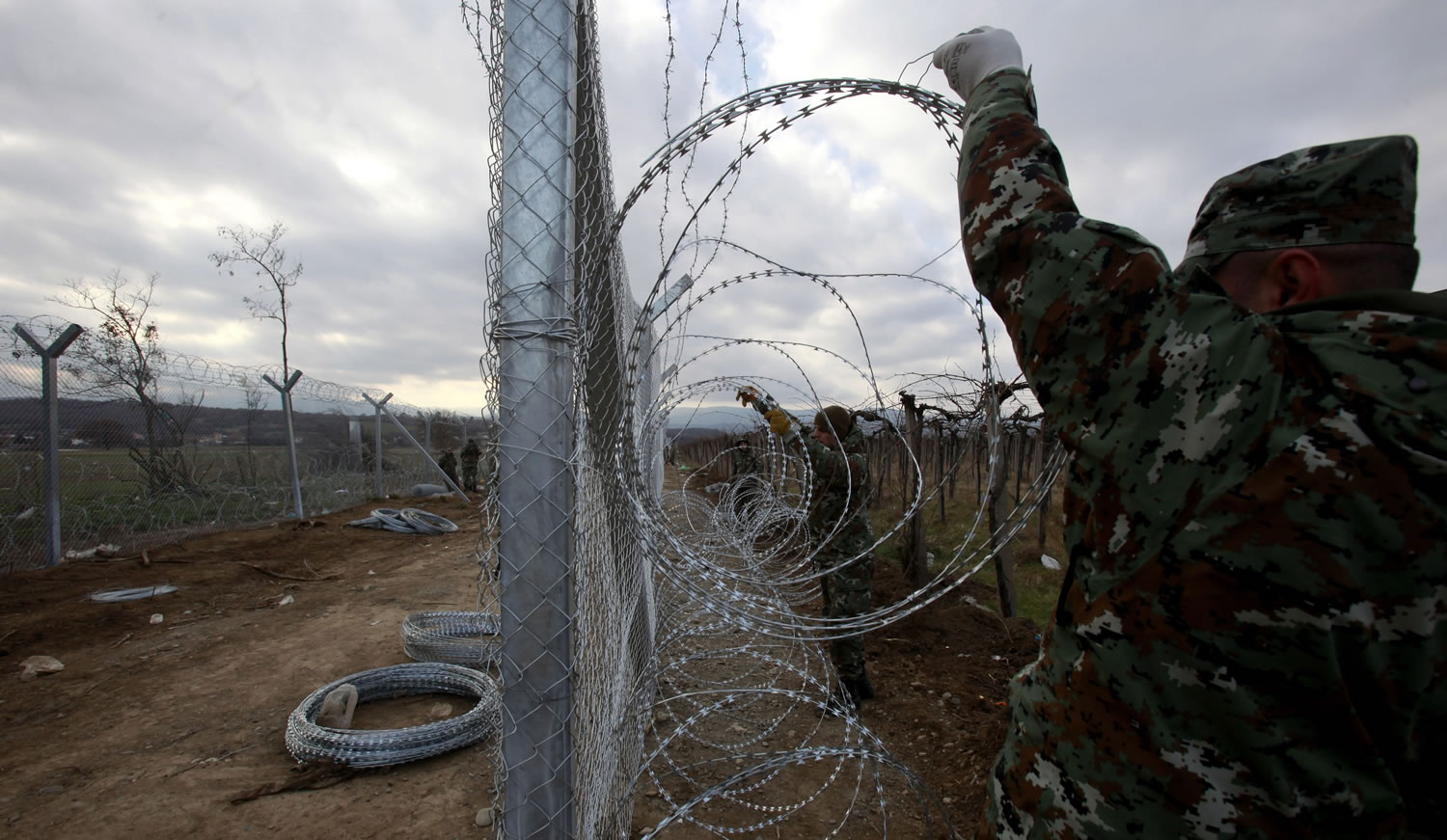WARSAW, Poland — So where should the next impenetrable razor-wire border fence in Europe be built?
Hungary’s right-wing Prime Minister Viktor Orban thinks he knows the best place — on Macedonia’s and Bulgaria’s borders with Greece — smack along the main immigration route from the Middle East to Western Europe. He says it’s necessary because “Greece can’t defend Europe from the south” against the large numbers of Muslim refugees pouring in, mainly from Syria and Iraq.
The plan is especially controversial because it effectively means eliminating Greece from the Schengen zone, Europe’s 26-nation passport-free travel region that is considered one of the European Union’s most cherished achievements.
Orban’s plan was featured prominently Monday at a meeting in Prague of leaders from four nations in an informal gathering known as the Visegrad group: Hungary, Poland, the Czech Republic and Slovakia. The Visegrad group, formed 25 years ago to further the nations’ European integration, marked that anniversary Monday. Still, it has only recently found a common purpose in its unified opposition to accepting any significant number of migrants.
This determination has emboldened the group, one of the new mini-blocs emerging lately in Europe due to the continent’s chaotic, inadequate response to its largest migration crisis since World War II. The Visegrad group is also becoming a force that threatens the plans of German Chancellor Angela Merkel, who wants to resettle newcomers across the continent while also slowing down the influx.
“The plan to build a new ‘European defense line’ along the border of Bulgaria and Macedonia with Greece is a major foreign policy initiative for the Visegrad Four and an attempt to re-establish itself as a notable political force within the EU,” said Vit Dostal, an analyst with the Association for International Affairs, a Prague based think tank.
At Monday’s meeting, leaders from the four nations were joined by Macedonian President Gjorge Ivanov and Bulgarian Prime Minister Boiko Borisov so they could push for the reinforcements along Greece’s northern border. Macedonia began putting up a first fence in November, and is now constructing a second, parallel, fence.
Poland has indicated a willingness to send dozens of police to Macedonia to secure the border, something that was expected to be decided at Monday’s meeting.
The leaders will try to hash out a unified position ahead of an important EU meeting Thursday and Friday in Brussels that will take up both migration and Britain’s efforts to renegotiate a looser union with the EU. The Visegrad countries have also recently united against British attempts to limit the welfare rights of European workers, something that would affect the hundreds of thousands of their citizens who now live and work in Britain.
The anti-migrant message resonates with the ex-communist EU member states, countries that have benefited greatly from EU subsidies and freedom of movement for their own citizens but which now balk at requests to accept even small numbers of refugees. The Visegrad nations maintain it is impossible to integrate Muslims into their societies, often describing them as security threats. So far the Poles, Czechs and Slovaks have only accepted small numbers, primarily Christians from Syria.
Many officials in the West are frustrated with what they see as xenophobia and hypocrisy, given that huge numbers of Poles, Hungarians and other Eastern Europeans have received refuge and economic opportunity in the West for decades.




